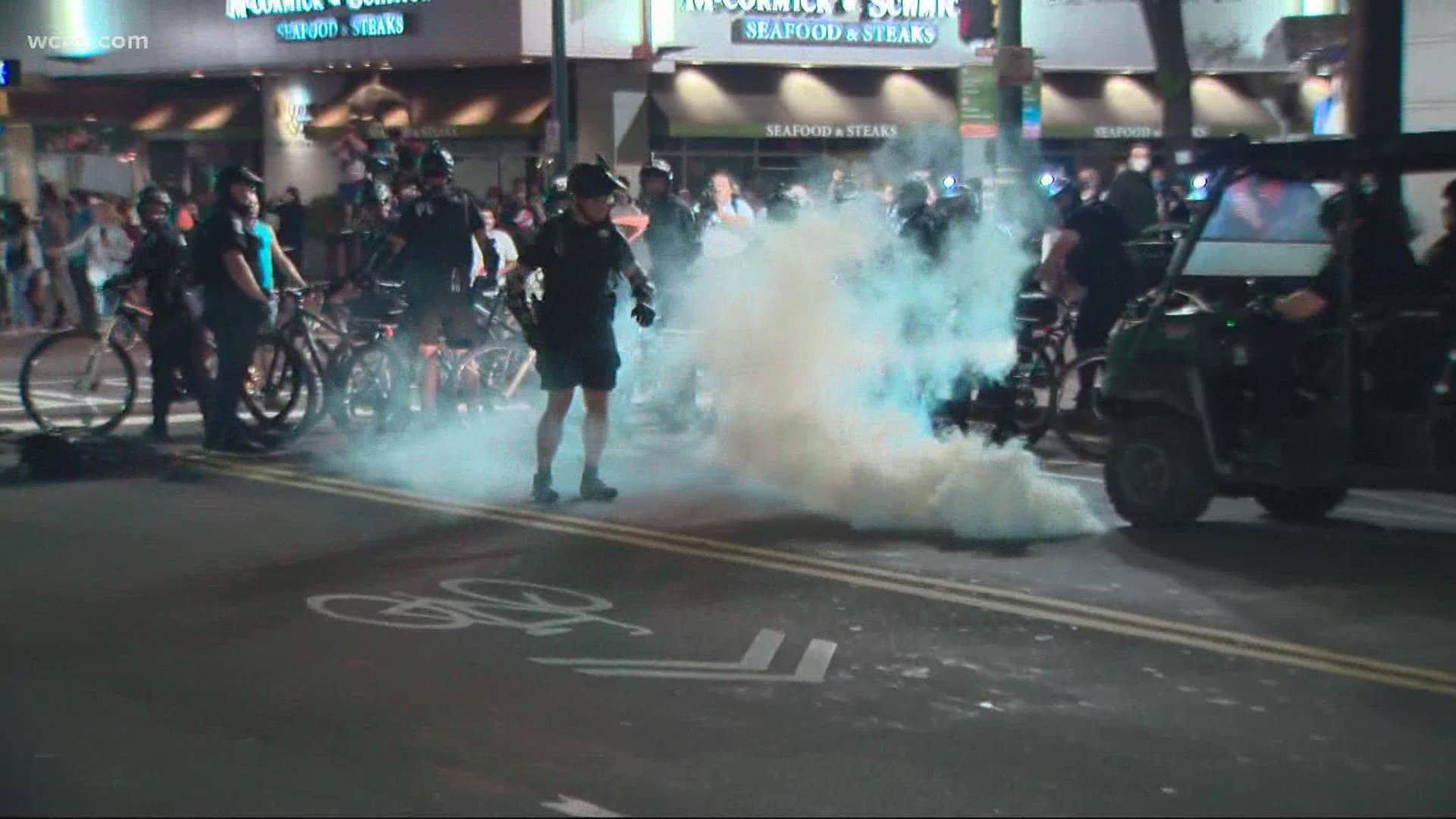CHARLOTTE, N.C. — The Charlotte-Mecklenburg Police Department is making big changes to its policies, including when and how officers can use chemical agents on protesters.
The department said they are taking the concerns of the community seriously.
It comes after CMPD used tear gas on protesters in June. The incident put the department under fire, and civil rights groups sued the department.
Chief of Police Johnny Jennings said he's open to having tough conversations about policing, and the department is listening to the community.
"We've tripled down our efforts as an organization to serve our community better," CMPD Communication Director Rob Tufano said.
Wednesday morning, Chief Jennings unveiled new policies. The first change: revising the use of chemical agents, like tear gas. Officers will now give additional dispersal orders before they are used.
The chemical agents can't block escape routes for protesters. The point is for dispersal orders and exit routes to be communicated loud and clear.
Additionally, body cameras will be put on riot control supervisors to help give a full picture and a better understanding of what's happening during those situations.
The department is also updating its Neglect of Duty policy, requiring officers to step in if they see another officer using too much force.
Lastly, CMPD is reviewing the 8 Can't Wait — a national campaign aimed to reduce police violence, like banning chokeholds and prohibiting officers from shooting at moving cars. Currently, CMPD implements three of the eight.
"Any change is better than what we had yesterday," NAACP's Charlotte-Mecklenburg County Branch President Rev. Corine Mack said.
Mack appreciates the new policies but calls them superficial.
"It sounds good and looks as if police are trying to do something different," she said. "But there is still not real change because there are loopholes and subjective versus objective."
Mack said she believes chemical agents and chokeholds need to be fully banned but calls on a greater issue.
"Until this country is willing to admit that there is a problem as to how police interact with brown and Black people we are never going to fix this problem," she said.
A survey was recently released about CMPD and its policing practices, and the department said it got 5,000 responses but lacked diversity. CMPD says it still wants to hear from the Hispanic and Black communities.
"This is where we are," Chief Jennings said. "We're not done. We have a lot of work to do, we know that, and we're going to continue to do that work."

